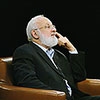Numbers Indicate Quality, Not Quantity
 Question: What is “a rose that has thirteen petals”?
Question: What is “a rose that has thirteen petals”?
Answer: Numbers in Kabbalah characterize a state. In general, we study the states of our desire relative to the Creator. There are only two players in this game: the desire to enjoy and the Light, the Creator. Kabbalists describe their interrelationships to us.
There are different ways to do it. One of the options is numeric characteristics. Numbers do not designate a numeric value; rather, they point to characteristics of the states. Each number carries a specific inner essence and symbolizes something.
Th number 13 indicates addition, meaning the additional Sefirot HaGaT. All other numbers and their numeric value (Gematria) are calculated according to the same principle.
In general, there are no colors, distances, noises, or forms in spirituality. Whatever the Kabbalists describe to us, they always point to the character of the interaction between desire and the Light. Everything comes down to a single parameter: to what measure desire becomes similar to the Light in all of its properties.
Each desire consists of 10 Sefirot or 613 parts. Hence, each desire can be considered to be a certain totality or volume; it is not a singular stroke, but a set of multitude details of perception. As a result, we attribute it a name, characterize it with a certain light, sound, and form. But ultimately, we always compare desire with the Light.
Similarly, all objects of our world, from solid ones to gases, can be pictured in the form of waves of a certain length, which draw images in our consciousness.
[28039]
From the 1st part of the Daily Kabbalah Lesson 11/29/10, The Zohar, Introduction, “The Rose”
Related Material:
What Is Gematria?
The Gematria Within Me







Discussion | Share Feedback | Ask a question